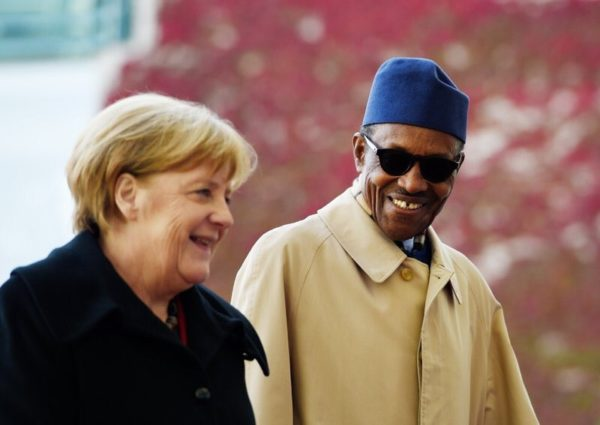Nigeria and Germany on Friday in Abuja signed two Memorandum of Understanding (MOU) in agriculture and commerce.
The first agreement was signed between the Nigerian Association of Chambers of Commerce, Industry, Mines and Agriculture (NACCIMA) and the German-Africa Business Association.
The First Deputy National President of NACCIMA, Hajiya Saratu Iya-Abubakar, signed on behalf of Nigeria, while Dr Stefan Liebing of German Africa Business Association, signed on behalf of the German Business Delegation.
The second agreement was signed between the Nigeria Incentive-Based Risk Sharing System for Agricultural Lending, (NIRSAL) and the PETKUS Technologies GmbH, a company that specialises in post-harvest agricultural value chain.
While the Managing Director of NIRSAL, Aliyu Abdulhameed, signed on behalf of Nigeria, the representative of PETKUS Technologies GmbH, Peter Huser, signed for the Germans.
Speaking after signing the MOUs, Nigeria’s Minister of Industry, Trade and Investment, Mr Okechukwu Enelamah, said the agreements would increase the collaboration between Nigeria and Germany in the two areas.
According to Enelamah, the agreements will also leverage small and medium enterprises in Nigeria.
“We want our SMEs to learn from the German experience.
“The other areas of German excellence is the technical area: technical education, technical training and technical development. It’s also an area of great interest to Nigeria.
“We are also working with Germany in the automobile sector because that is also an area where Germany is a leader and Nigeria clearly has a policy to be a leader in the auto sector in West Africa and Africa.’’
The minister said that all these would require high levels of engagement, collaboration and communication to be actualised.
Also speaking, Abdulhameed said the MOU signed between NIRSAL and PETKUS was borne out of the realisation of the opportunities that existed for investments in the Nigerian agricultural sector under the President Muhammadu Buhari administration.
“Under the current administration and the present agricultural promotion policy of this government, there are ample opportunities for investors in terms of technology and capital, to come to Nigeria and to invest in the agricultural sector.
According to Abdulhameed, NIRSAL provides the risking environment and mechanisms to enable investors like PETKUS to come to Nigeria and do their business.
He noted that the agreement would go a long way in reducing the 51.3metric tons of aggregate food production, equivalent of about 9 billion dollars, “which the Food and Agricultural Organisation, report says Nigeria loses annually.’’
He expressed his optimism that PETKUS, which specialises in post-harvest segment of the agricultural value chain, would bring its expertise to bear on post- harvest productions in Nigeria.
In his remarks, Huser said the interest of his company was to help small farmers boost their yield.
“We are not talking about big investments. We are talking about smallholder farmers, where we like to help them to boost their yield, to get better yield.
“We are talking about plant production. We are talking about fertilisation.”
He expressed hope that each machine supplied by PETKUS Technologies would provide employment and improve income for five people and their families.












